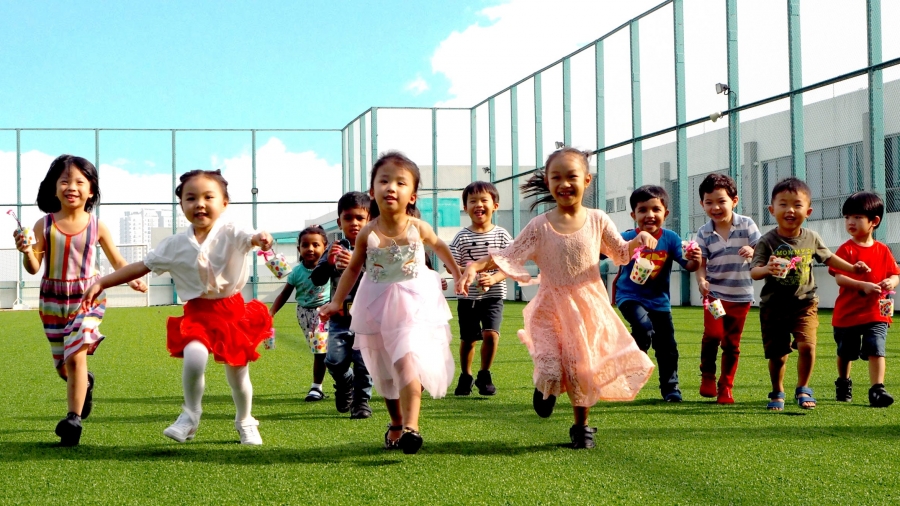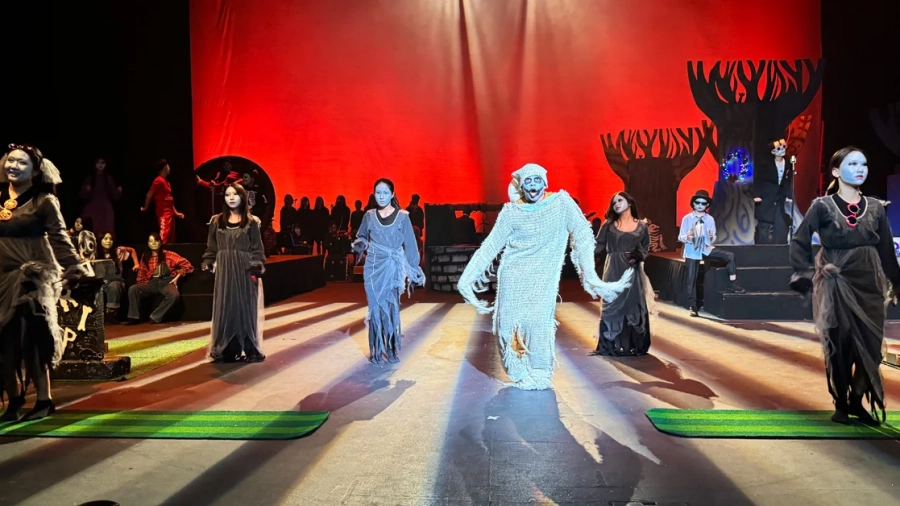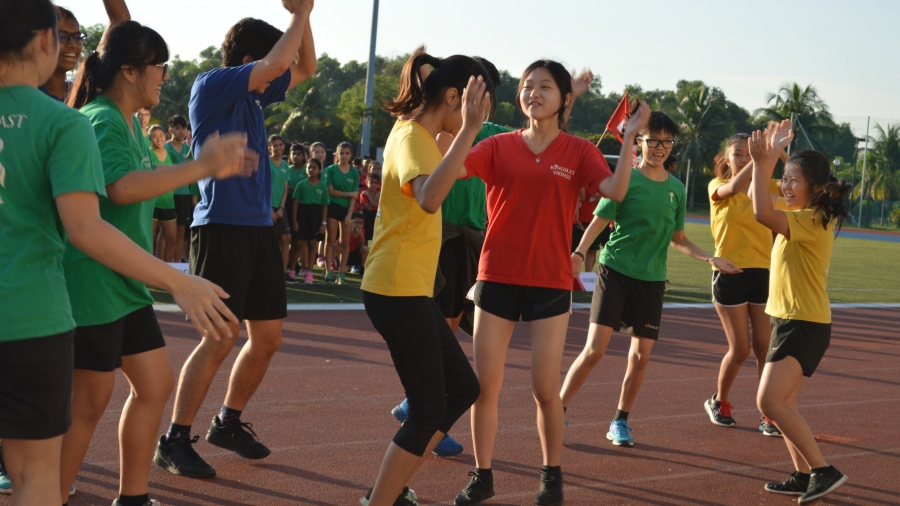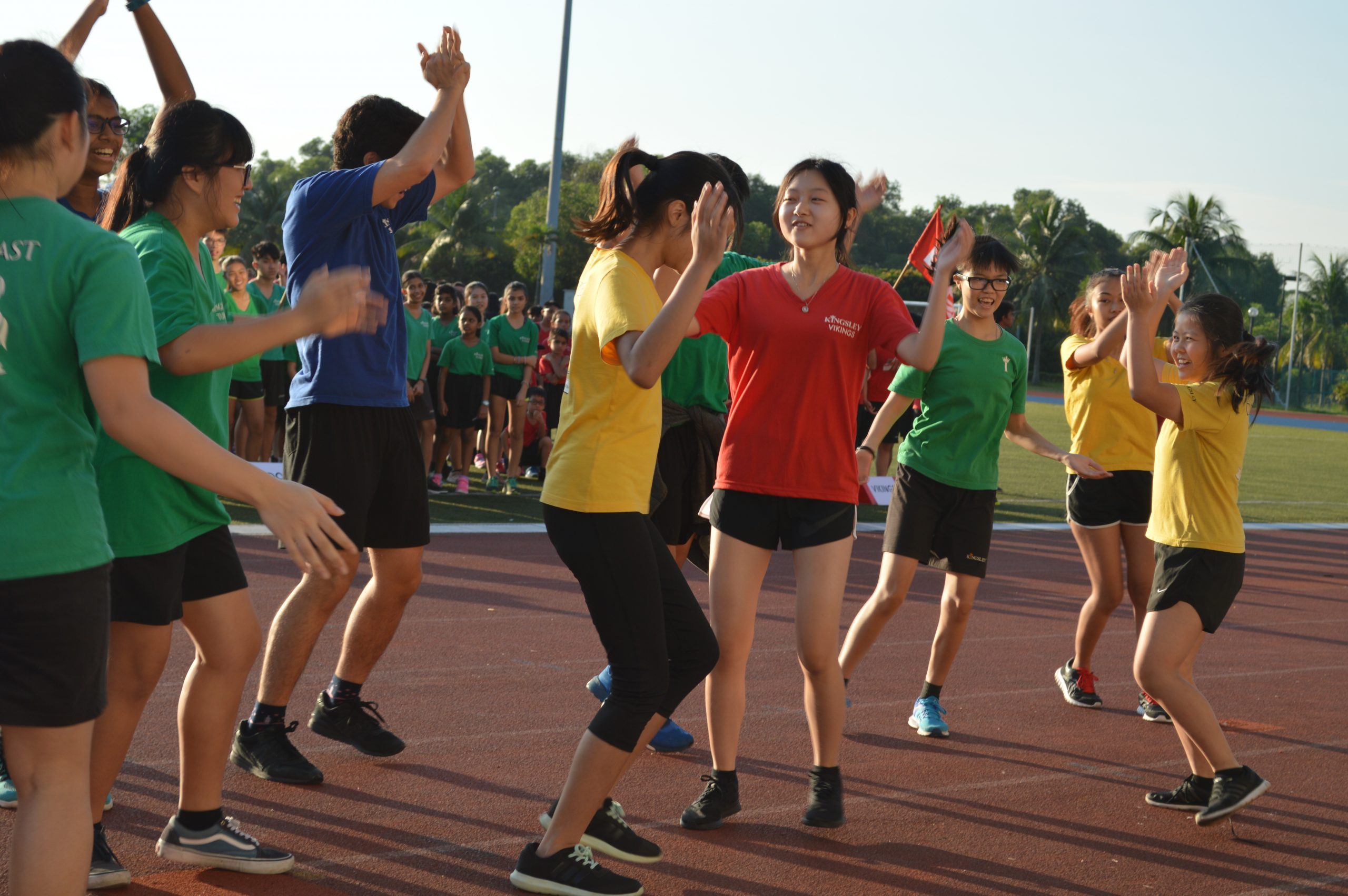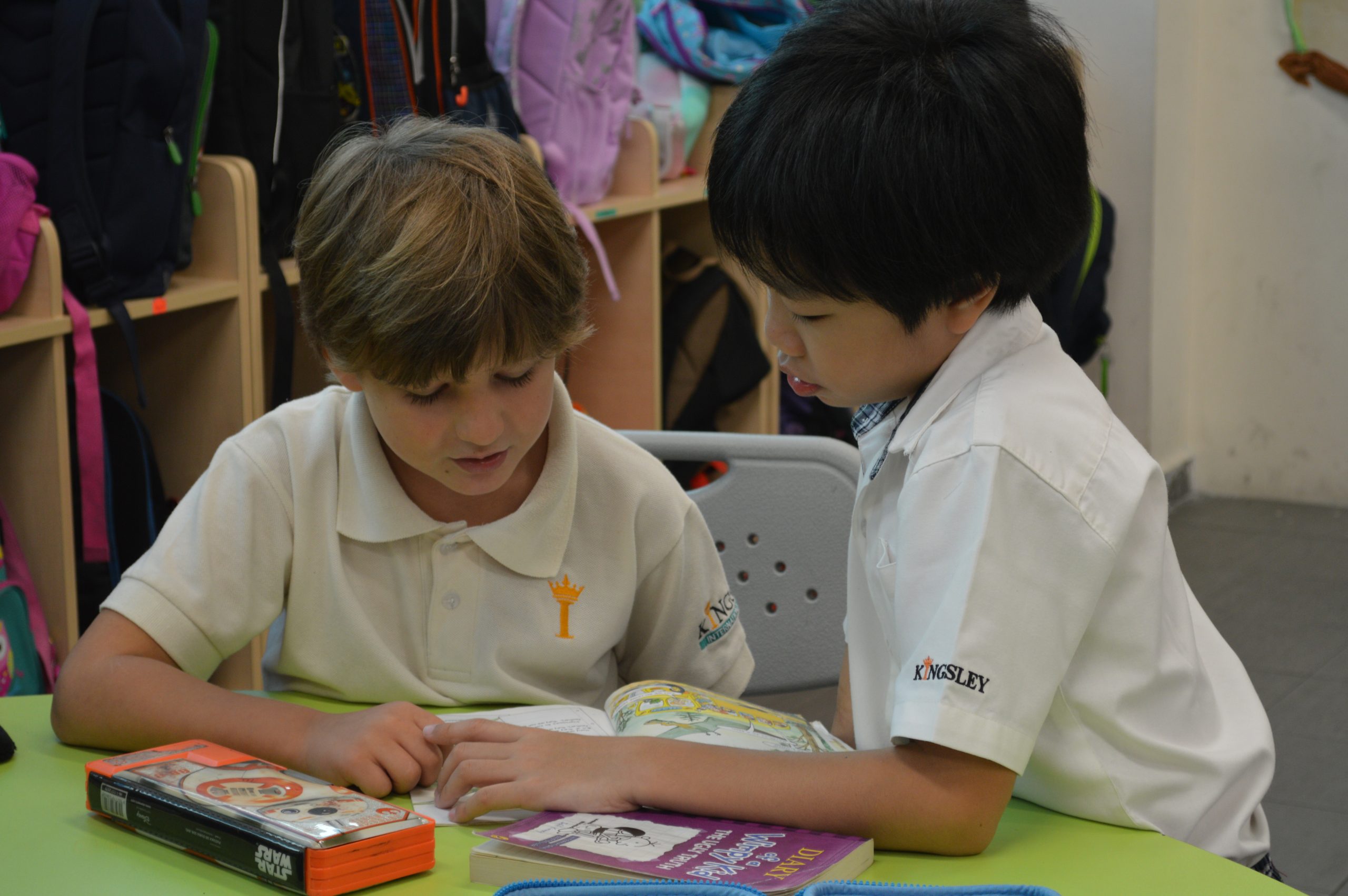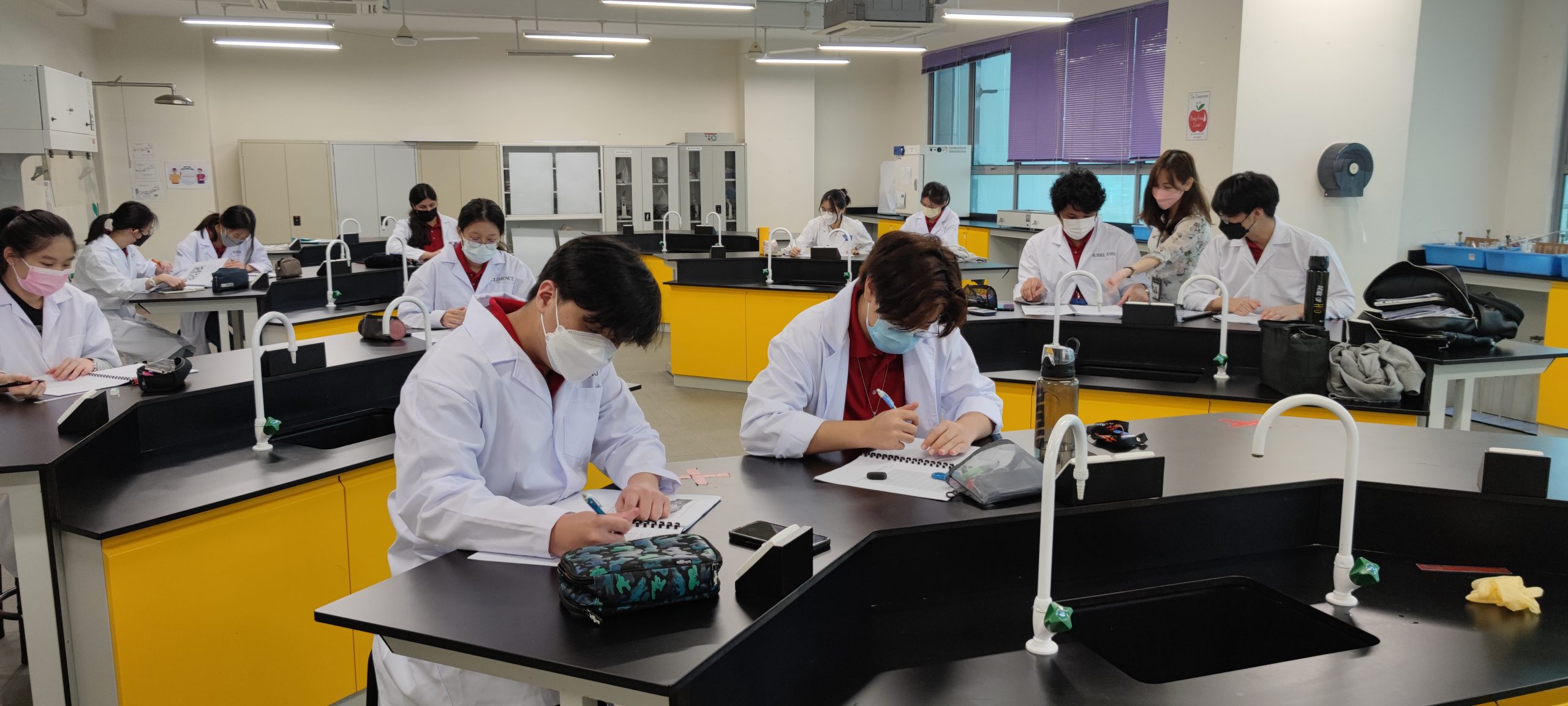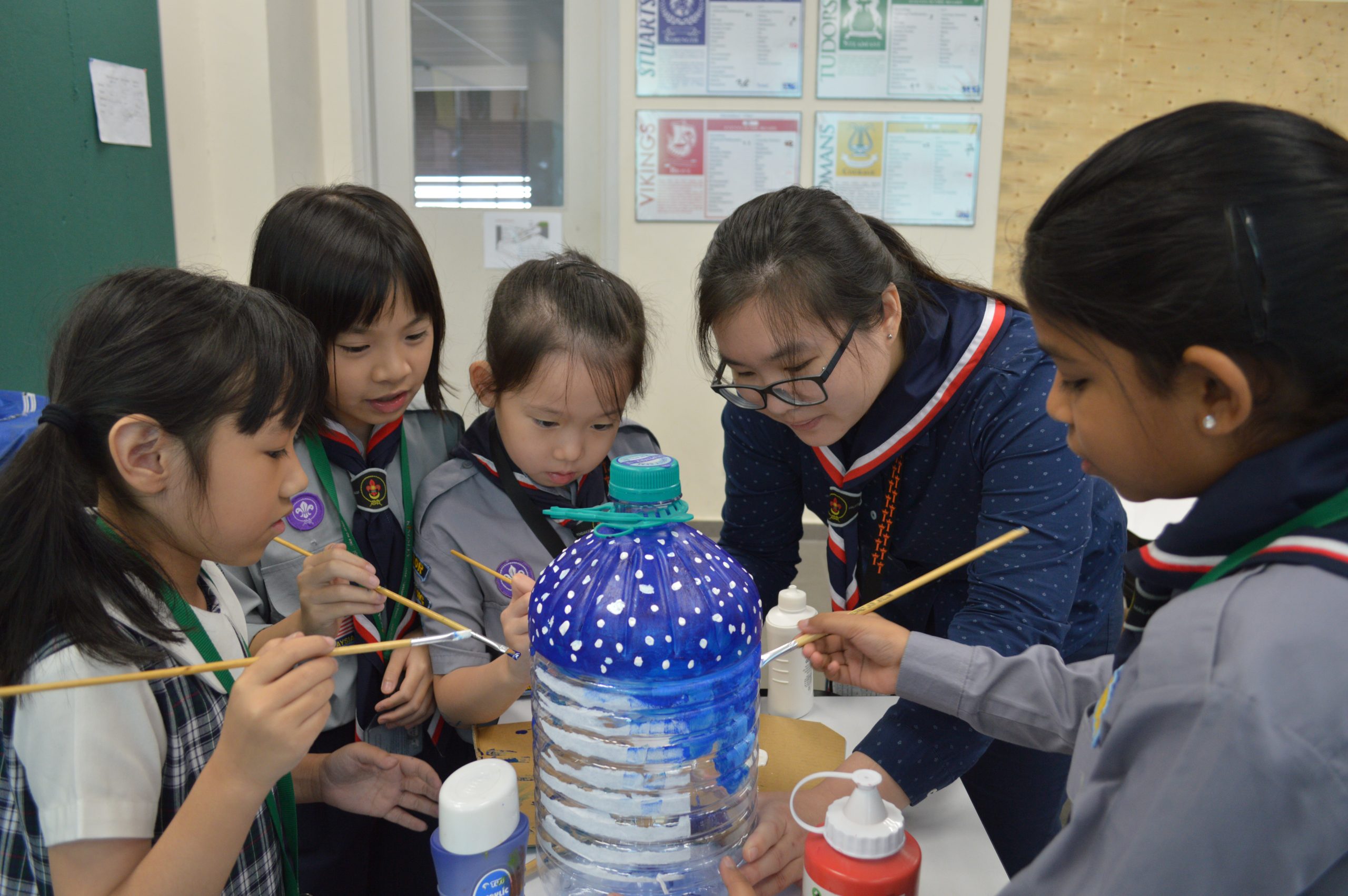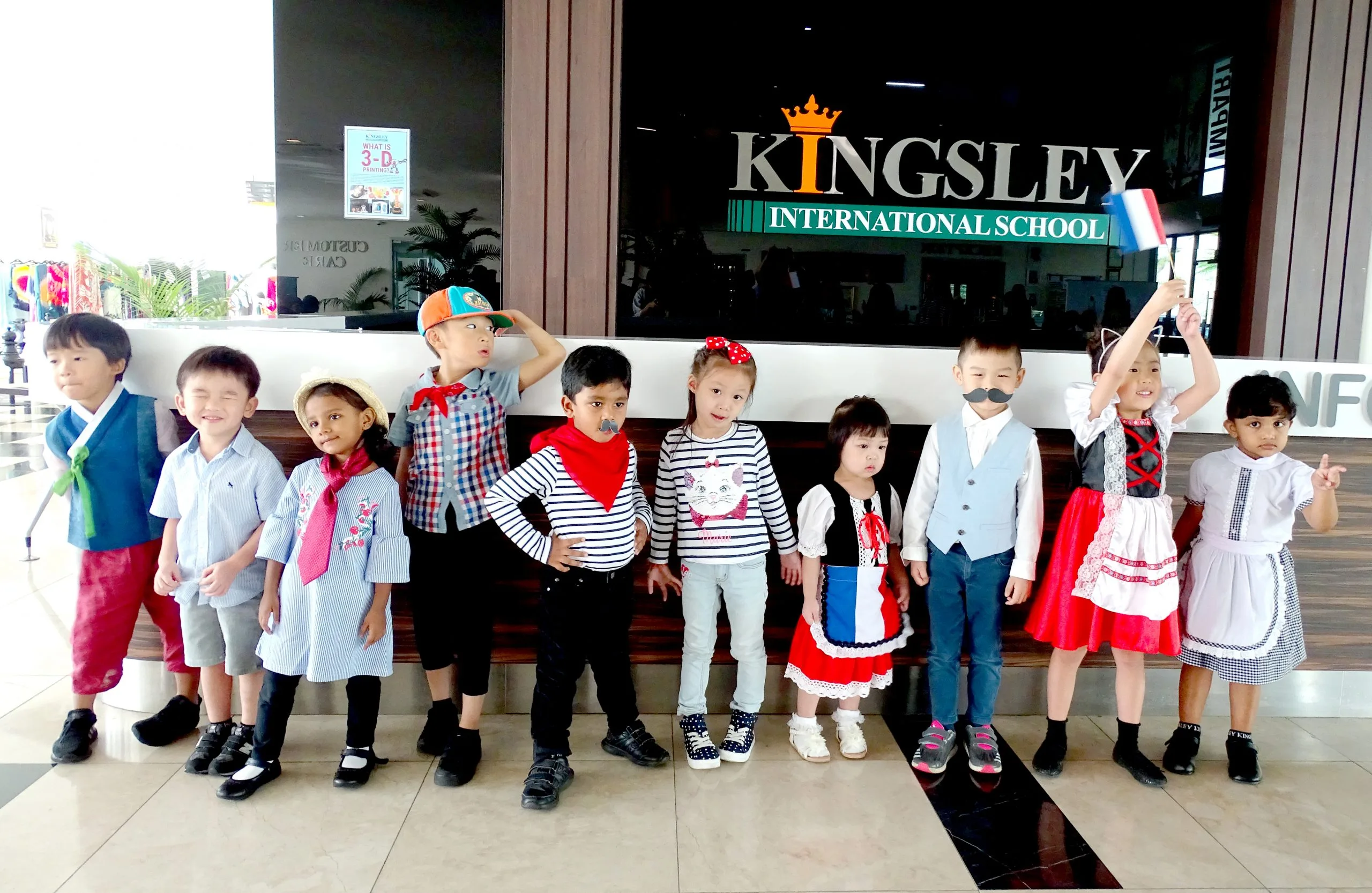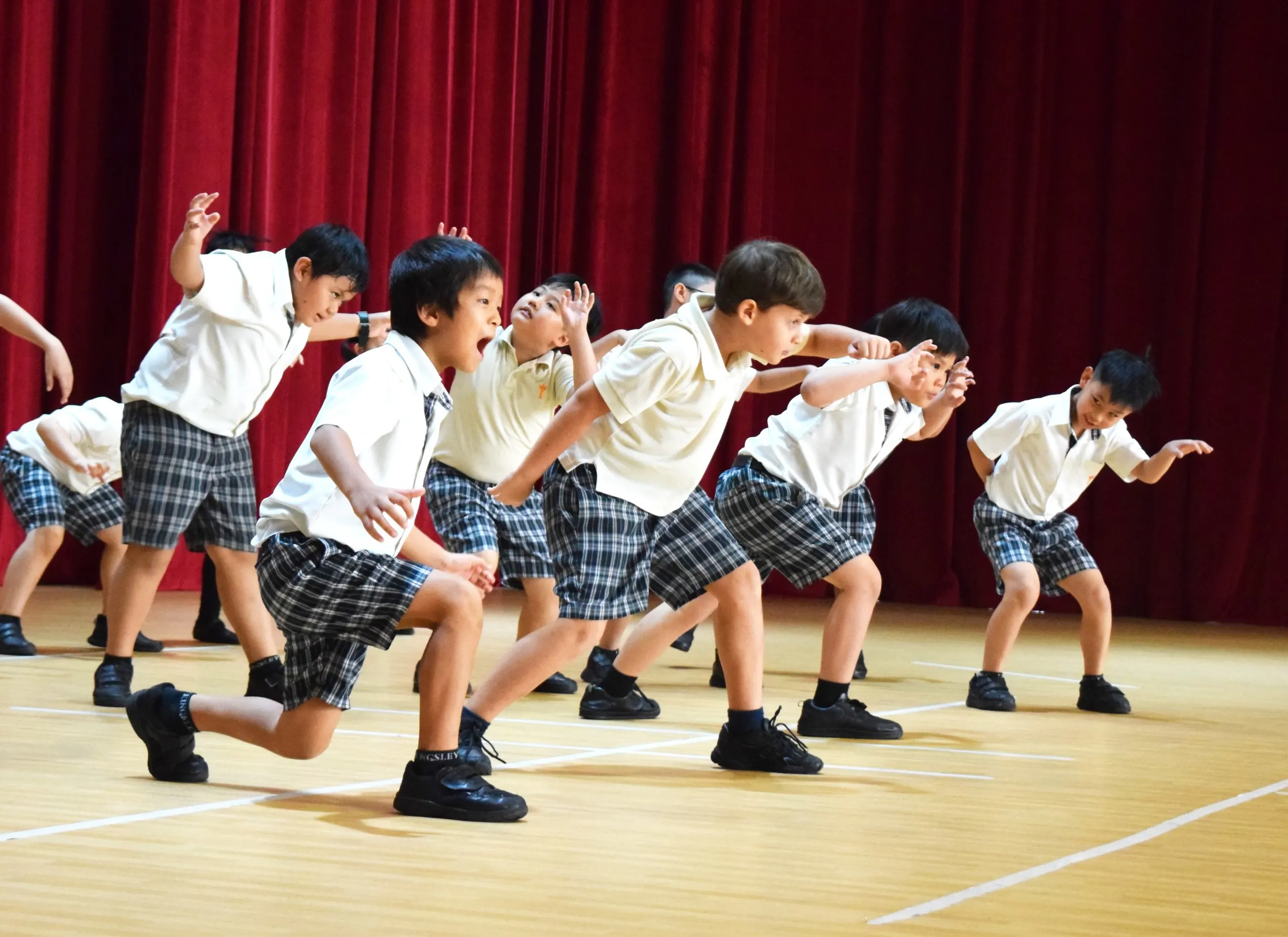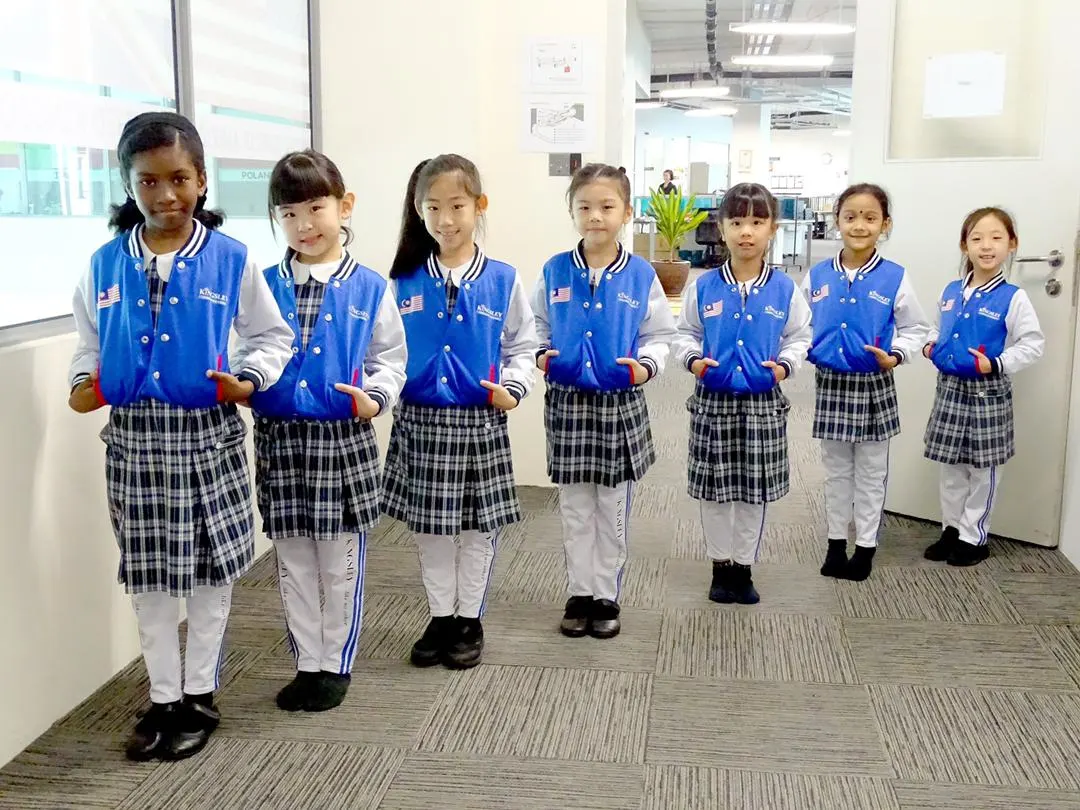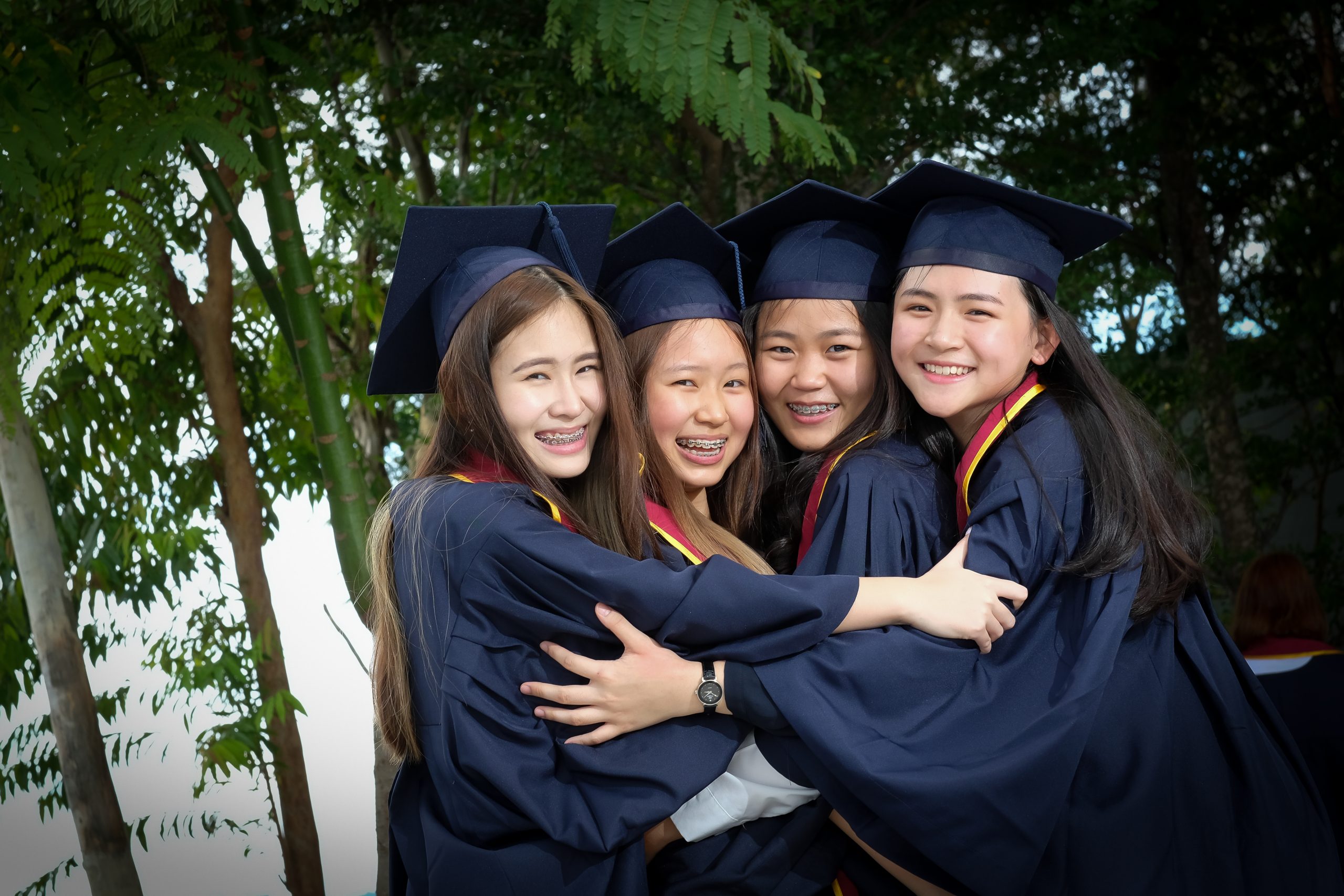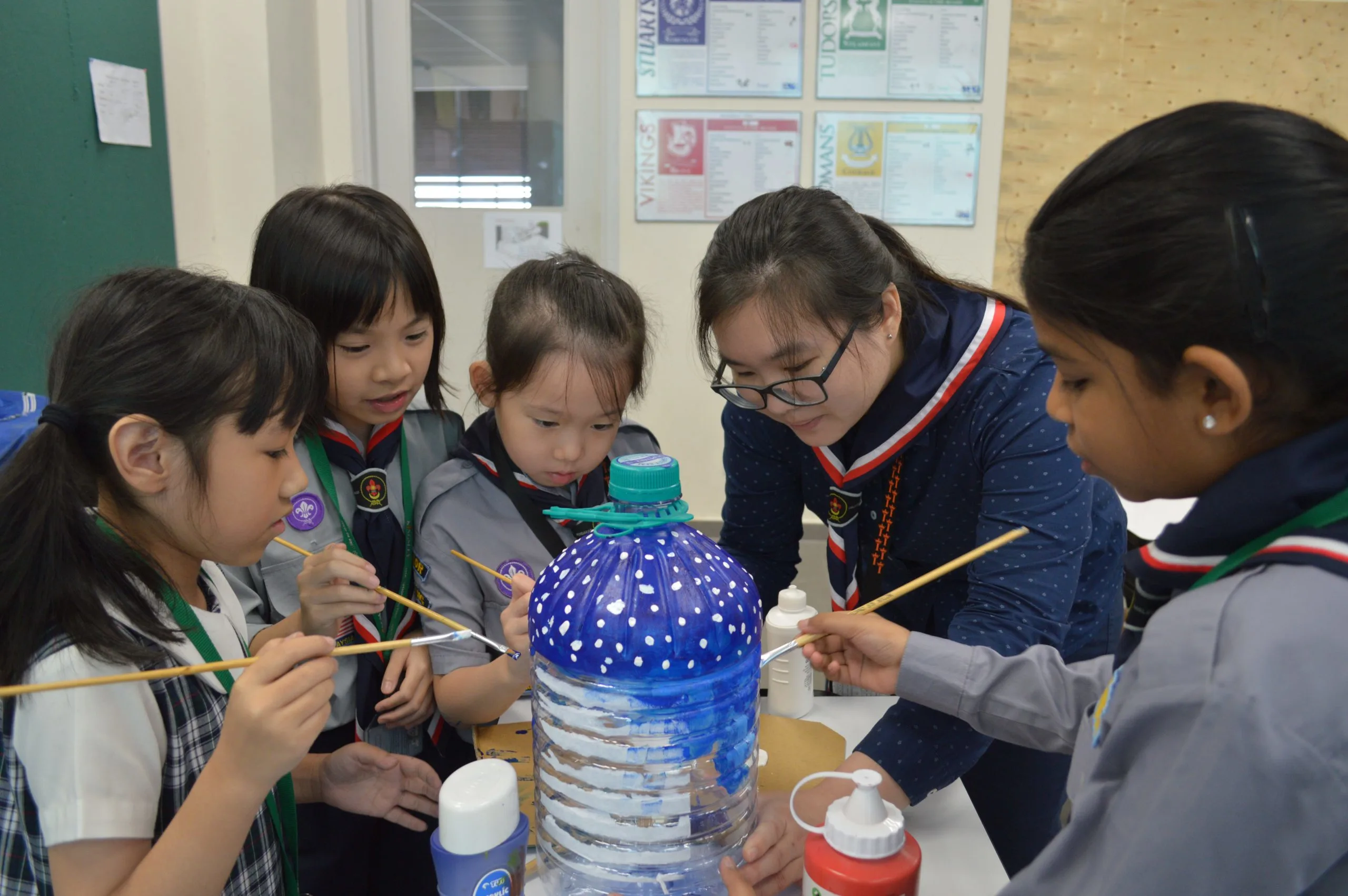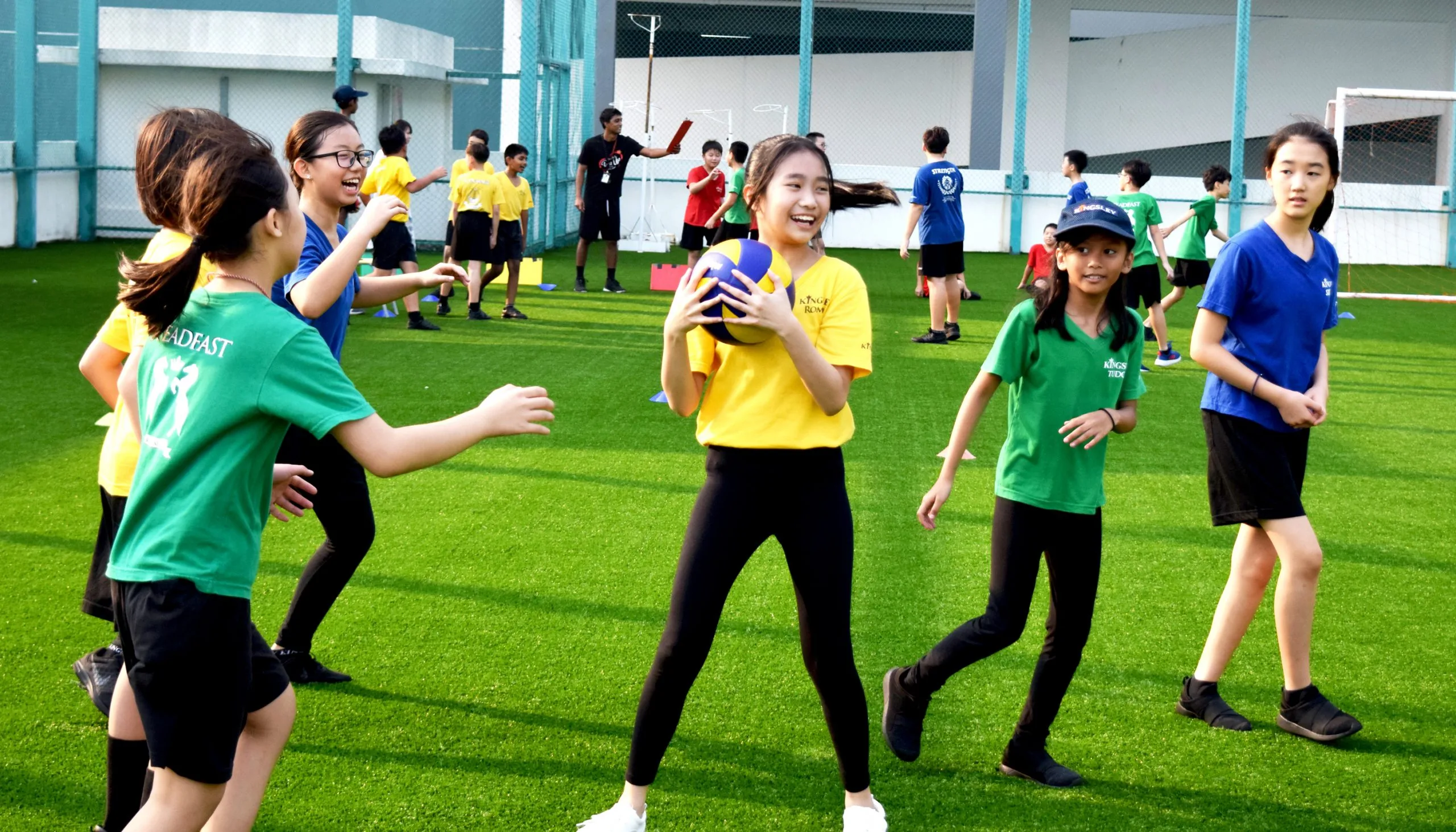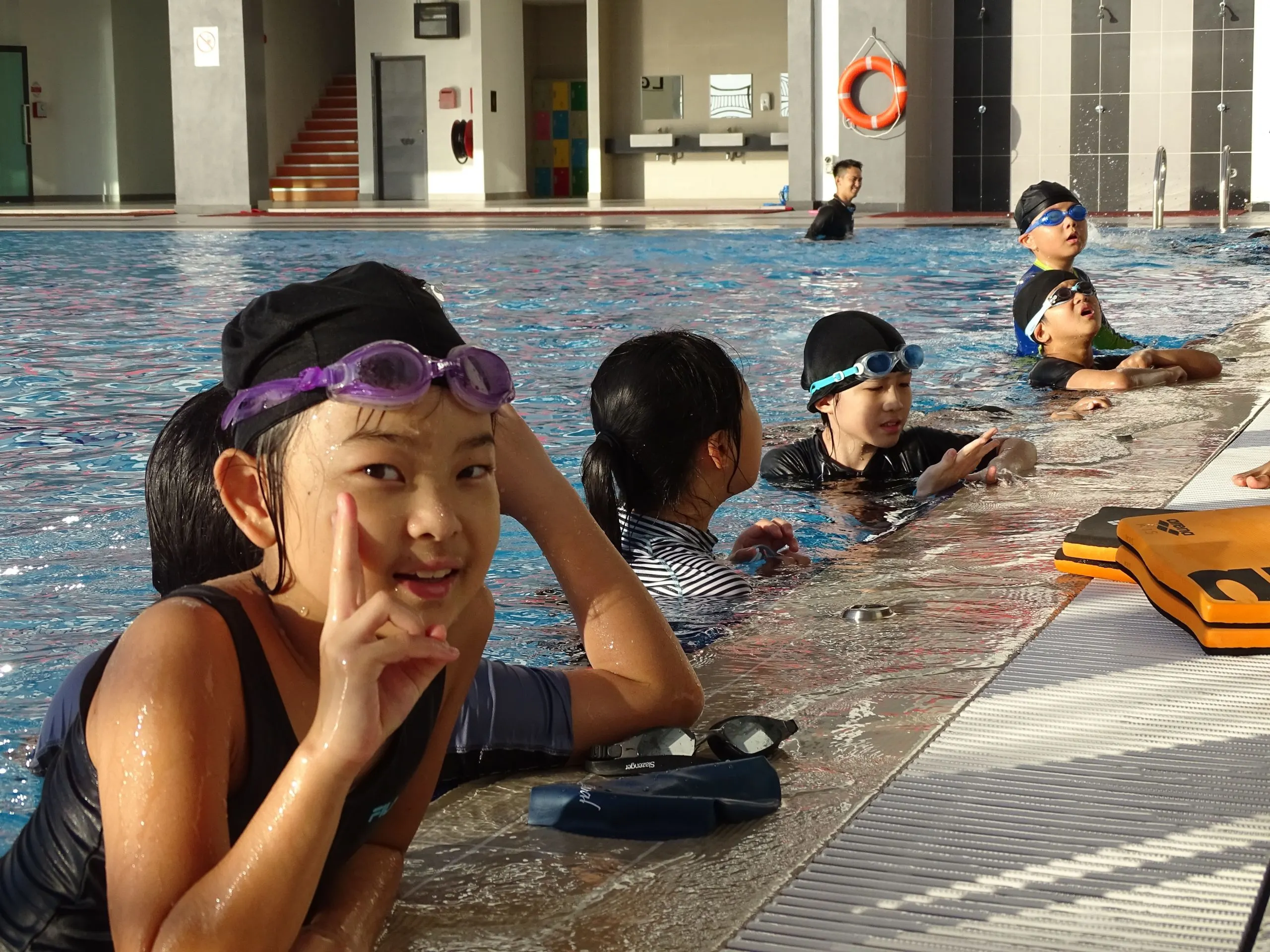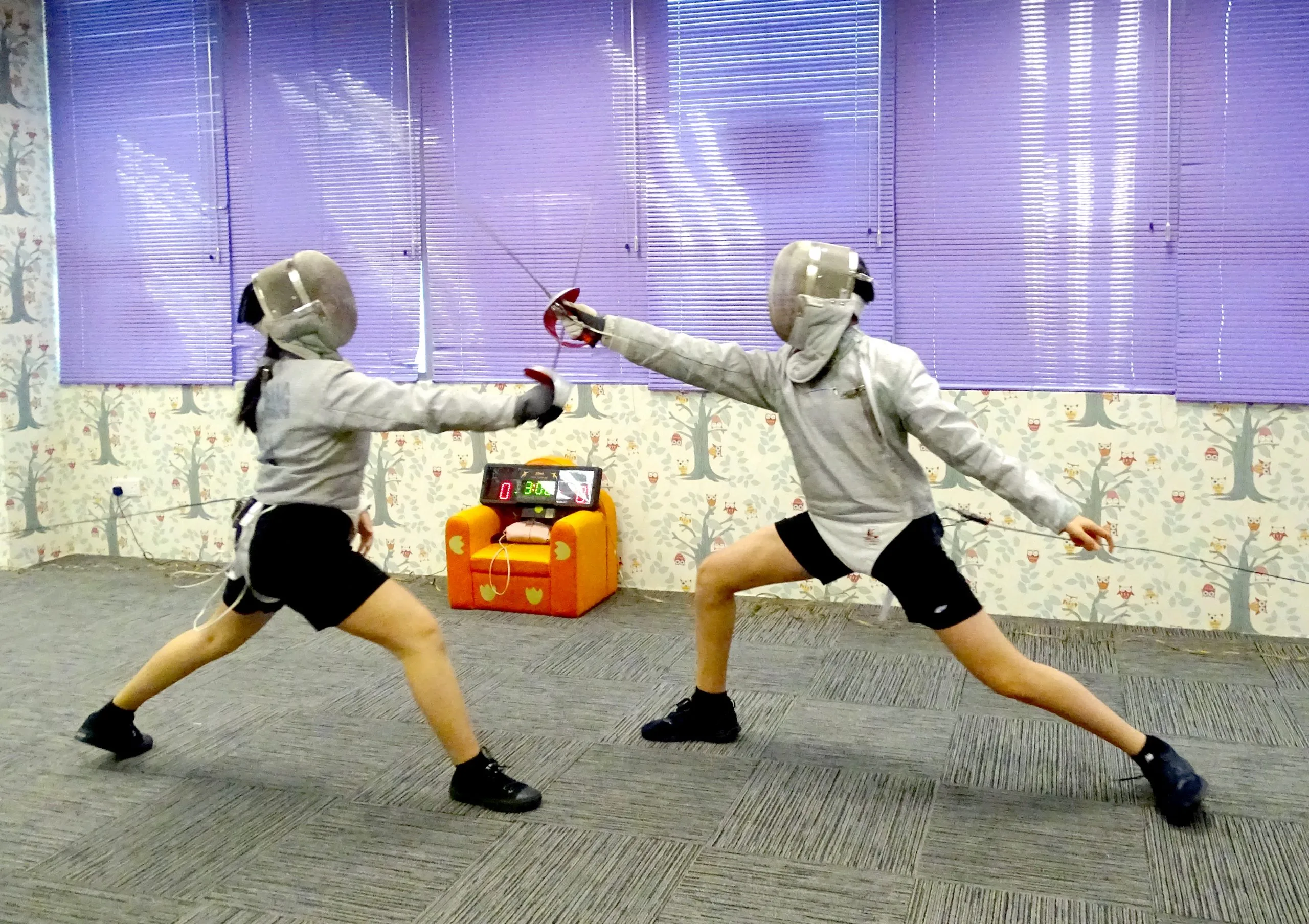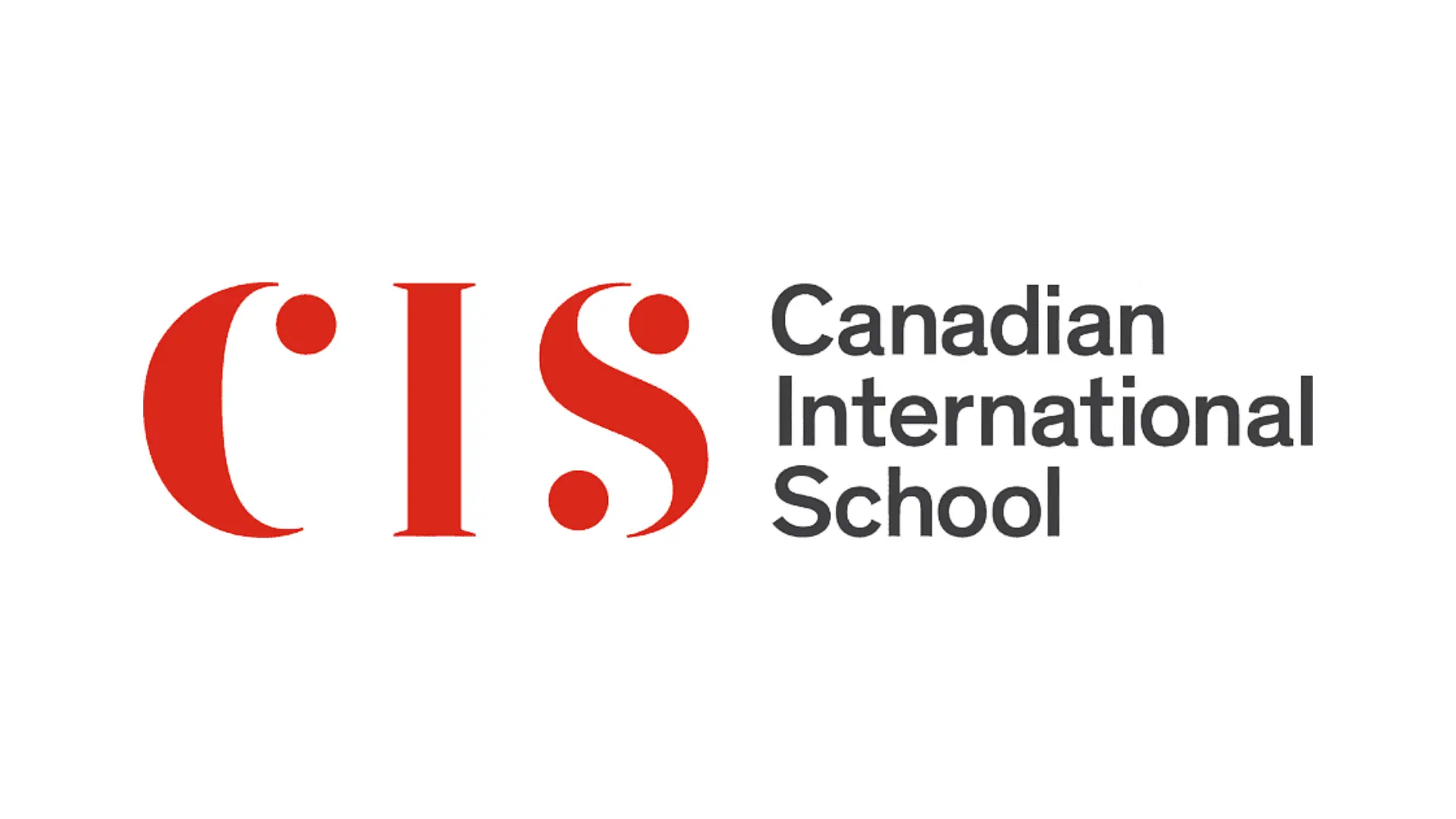The 15 Key Milestones of Preschoolers
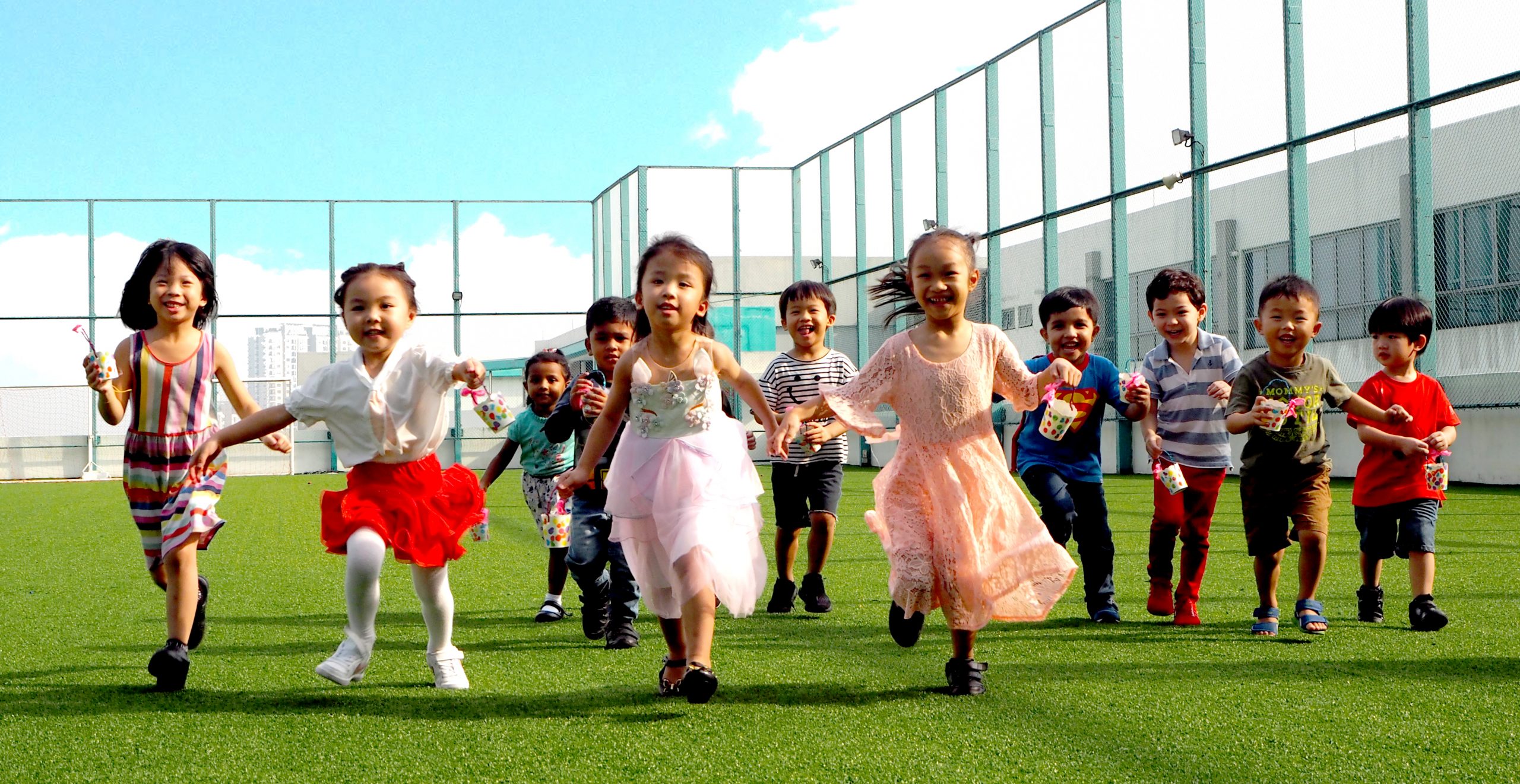
Looking for an international preschool that will prepare your child for the uncertain future? Read on to find out about Maple Leaf Kingsley International School’s Early Years Programme.
The moment a child is born, a parent is born too.
Life takes on new meaning, new purpose, and a newfound love that changes everything. From that moment until around the age of 5 years, marks a significant period called the Early Years.
According to numerous studies, this period is crucial for a child’s development in many areas including cognitive, physical, language, social and emotional development.
As a parent’s journey unfolds, a profound importance of key developmental milestones in their child’s life is also realised and each moment marks a new chapter of growth, discovery, and boundless love.
“Education is the passport to the future, for tomorrow belongs to those who prepare for it today.” – Malcolm X (Activist, Advocate)
Let’s take a deeper look at the 15 key developmental milestones of a preschool child.
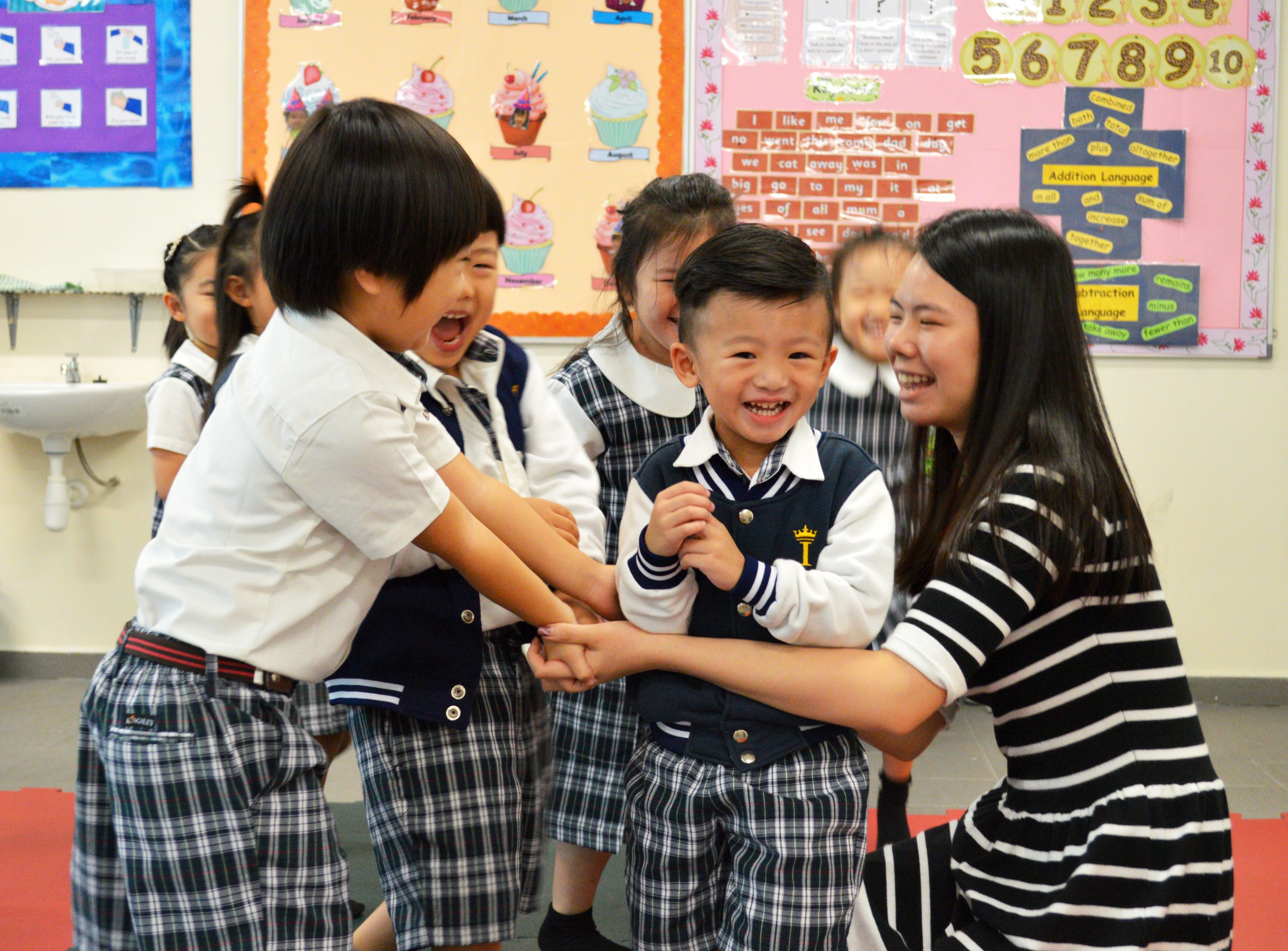
Understanding International Preschool at Kingsley
The Early Years stage can be a whirlwind period of excitement and anticipation for parents – the responsibility of choosing the right preschool, curriculum, environment and so on and so forth can be a lot to consider!
Our intention is to help parents of preschoolers understand the importance of early childhood education for preschoolers.
Preschool is where the adventure begins
Igniting young minds and paving the way for their educational journey ahead.
Enrolling your child in preschool marks the start of an exciting chapter, typically beginning between the ages of 3 to 5 years. Unlike nursery school, which caters to younger children aged 18 months to 3 years with a primary focus on playtime, preschool offers a dynamic blend of learning and exploration, setting the stage for a lifetime of discovery.
Preschool paves the way to formal schooling, where there is a variety of curriculum to choose from. Depending on the goals you have for your child, you may choose to prioritise a certain curriculum. While daycare or nursery schools typically emphasise unstructured playtime, preschools lean towards a more educational approach by integrating academics with playtime, placing particular emphasis on structure and academics.
Ultimately, preschools play a pivotal role in laying the groundwork for a child’s success in formal education or primary school.
The 15 key developmental milestones
The developmental milestones that we know today are the result of a collective effort by specialists and experts in the fields of early childhood development, education, psychologists, healthcare and more. These studies are ongoing and we uncover more each day through their reports, findings and contributions!
“Children are not things to be moulded, but are people to be unfolded.” – Jess Lair (Author)
Let’s delve into the significance of key developmental milestones in early childhood:

Cognitive development
- Numeracy Skills: Children learn foundational mathematical concepts like counting, sorting, and recognising shapes and patterns. Hands-on activities and games are integrated to make learning maths enjoyable and accessible.
- Critical Thinking: Children are encouraged to ask questions, make observations, and draw conclusions. Activities like science experiments, nature walks, and hands-on projects develop critical thinking skills and a thirst for knowledge.
- Independence: Preschool builds independence and self-help skills, empowering children to take care of themselves and their belongings. Tasks like dressing themselves, tidying up, and following routines promote confidence and autonomy.
- Executive Functioning: Preschool activities that require planning, organising, and prioritising tasks enhance executive functioning skills. Children learn to follow instructions, manage time, and stay focused on activities, laying the groundwork for future academic and life success.
- Creativity and Imagination: Preschool fosters creativity and imagination through art, music, dramatic play, and storytelling. Children are encouraged to express themselves to develop problem-solving skills, innovation, and divergent thinking.
- Resilience: Children deserve a safe and supportive environment to take risks, make mistakes, and learn from failures. We provide a safe space and encourage a growth mindset while praising effort over outcome which instils resilience and perseverance in the face of challenges.

- Fine Motor Skills: Preschool activities such as drawing, painting, cutting, and threading help children develop fine motor skills and hand-eye coordination. These skills are essential for tasks like writing, tying shoelaces, and using utensils independently.
- Gross Motor Skills: Children often have a burst of energy and need an outlet to channel their energy! Preschool encourages active play, fostering strength, balance and coordination through physical activities like running, jumping, climbing, and playing with balls or outdoor equipment to promote gross motor development.
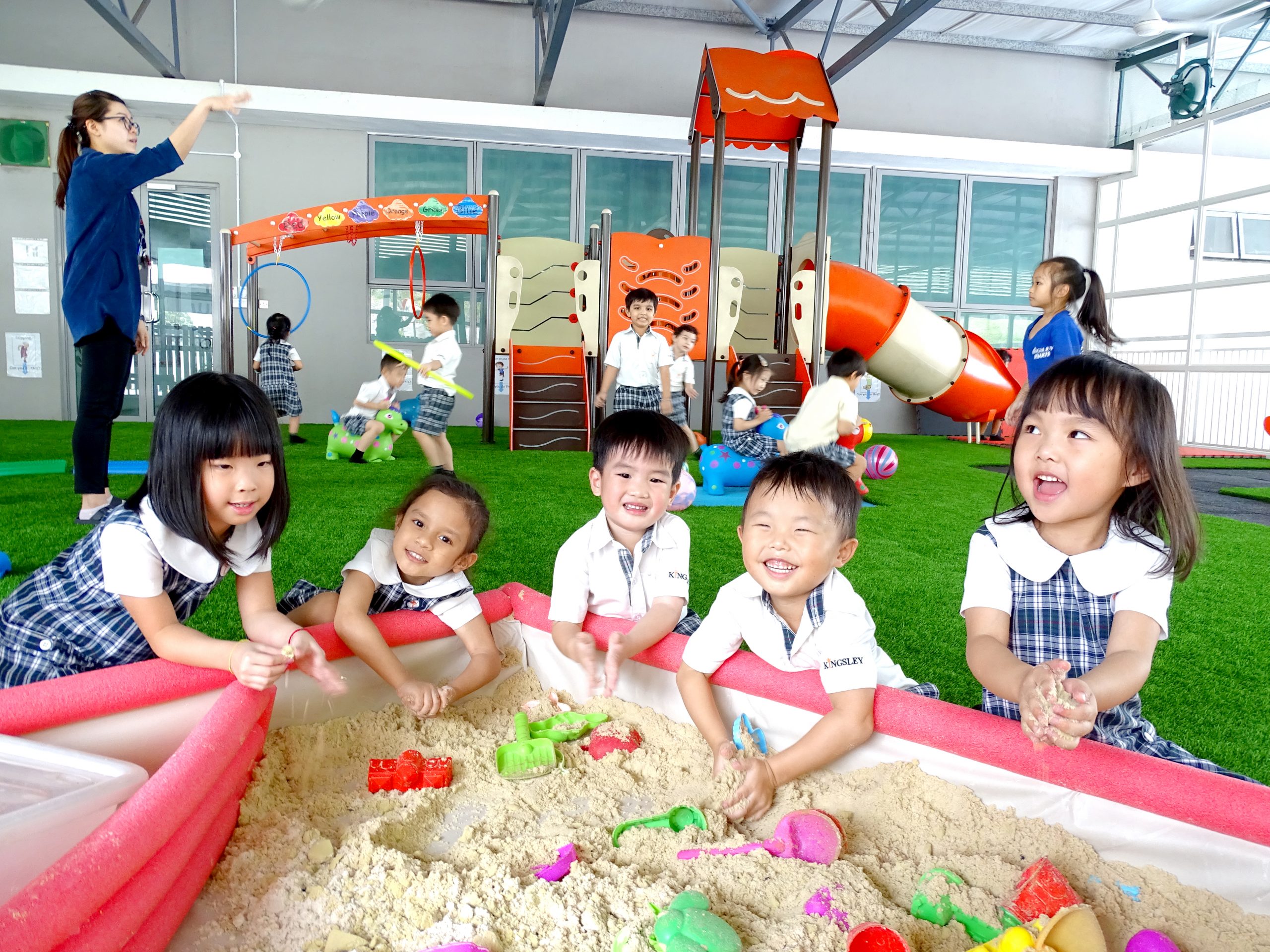
- Preparation for School: Preschool serves as a bridge between home and formal schooling, familiarising children with classroom routines, expectations, and structures. Learning to follow schedules, raise hands, and participate in group activities prepares them for primary school and beyond.
- Socialisation: Preschool provides a structured environment for children to interact with peers, learn social norms, and develop social skills such as sharing, taking turns, cooperating, and resolving conflicts. These interactions lay the groundwork for positive relationships and teamwork.
- Cultural Awareness: An international preschool such as Kingsley exposes children to diverse cultures, traditions, and perspectives, fostering acceptance, respect, and appreciation for differences. Celebrating holidays, exploring world cultures, and sharing stories from various backgrounds promote cultural understanding and empathy.
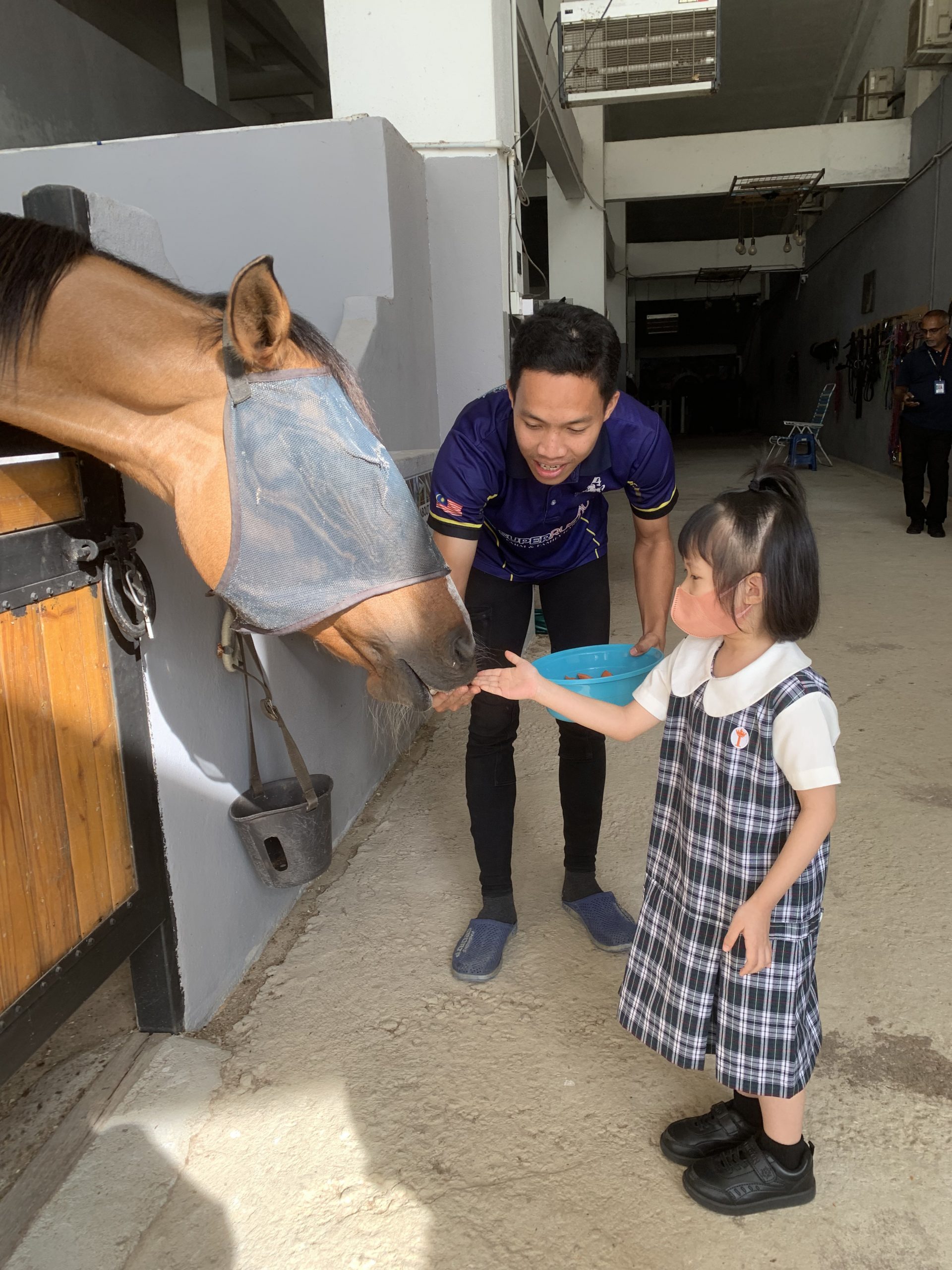
Emotional development
- Confidence and Self-Esteem: Preschool provides a nurturing environment where children feel valued, respected, and encouraged to take on new challenges. Successes, no matter how small, boost confidence and self-esteem, laying a strong foundation for future academic and personal growth.
- Emotional Regulation: Preschool teaches children to recognise and manage their emotions in a supportive and nurturing environment. Through activities like storytelling, role-playing, emotional expression exercises and even bonding with animals, they learn to identify feelings, cope with frustration, and develop empathy towards others.
Language development
- Language Development: Through interactions with teachers and peers, children refine their language skills, expanding vocabulary, improving communication, and learning grammar and syntax. Preschool provides ample opportunities for verbal expression, listening, and comprehension.
- Early Literacy Skills: Preschool lays the foundation for literacy by introducing children to letters, sounds, and pre-reading activities. Storytime, rhyming games, and letter recognition exercises promote a love for reading and set the stage for future academic success.

How does Kingsley provide for the preschool children?
The Early Years Department (EYD) at Maple Leaf Kingsley International School is meticulously designed in alignment with both International (Cambridge) and National (Malaysian) standards of Early Childhood Education.
We prioritise personalised learning for every child, ensuring a small class size and employing the Multiple Intelligence (MI) approach to foster their unique talents and abilities, thereby empowering each child to reach their full potential.
While the milestones cover various areas of development in a child, it’s important to note that each child is as unique as their thumb print; there is no other like them!
For this reason alone, selecting a school that prioritises the individual needs of a child is of utmost value.
“The soul is healed by being with children.” – Fyodor Dostoyevsky (Novelist, Writer, Journalist)
In addition to the developmental milestones highlighted earlier, Kingsley’s Early Years Department (EYD) team comprises experienced, passionate and devoted educators that go the extra mile to ensure the holistic growth and wellbeing of every young learner in our care.
We are dedicated to nurturing children’s overall development through active engagement in parent involvement, child health and wellbeing, early intervention, and the joy of learning. Now, let’s explore these other aspects:
Parent Involvement: Providing a holistic growth means learning doesn’t end when the teacher says goodbye! We often involve parents in their child’s learning journey, providing resources, workshops, and opportunities for family engagement. Parent involvement strengthens the home-school connection and supports children’s holistic development.
Health and Wellbeing: Kingsley’s programme promotes healthy habits and routines, including nutritious eating, regular exercise, proper hygiene, and adequate rest. Educating children about health and safety practises instils lifelong habits that contribute to their overall wellbeing.
Early Intervention: Kingsley’s school has always held firm to our motto of transparency and open communication. As a result, our programme prioritises early identification of learning challenges or developmental delays, enabling timely intervention and support.
With a small group enrolled in each class every term, we are able to give personalised attention.
Our dedicated team of early childhood professionals collaborates closely with families and specialists to address individual needs and unlock each child’s full potential. Together, we ensure that every child receives the tailored support they require to thrive.
Above all, the team at Kingsley cultivates a love for learning and exploration, making education enjoyable, engaging, and meaningful for young children. Sparking curiosity, creativity, and wonder instils a lifelong passion for discovery and self-improvement.
A message to discerning parents
In conclusion, choosing the right preschool for your little one is no ordinary task! It’s crucial that your chosen preschool aligns with the key developmental milestone stated previously to foster continuous progress in your child’s growth.
Maple Leaf Kingsley International School (MLKIS) stands as the perfect choice for parents seeking a comprehensive preschool education experience that nurtures their child’s curiosity and encourages them to explore their interests. Our commitment to excellence is evident in our alignment with the standards of Early Childhood Education and more, ensuring that every child receives a well-rounded education.
For more information about our programmes and offerings, we invite you to contact us. Join us at MLKIS, where every child’s journey is valued, supported, and celebrated.


